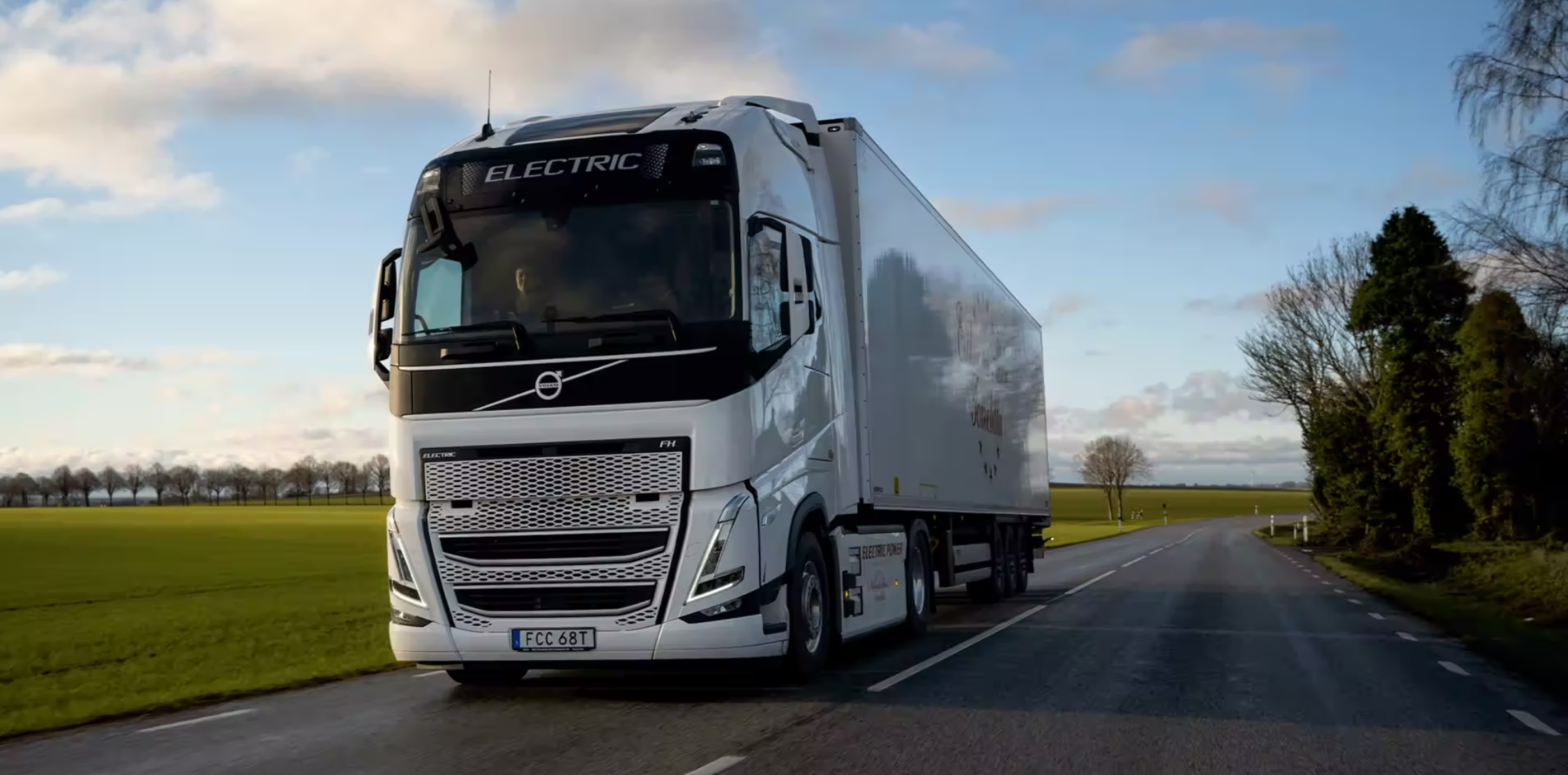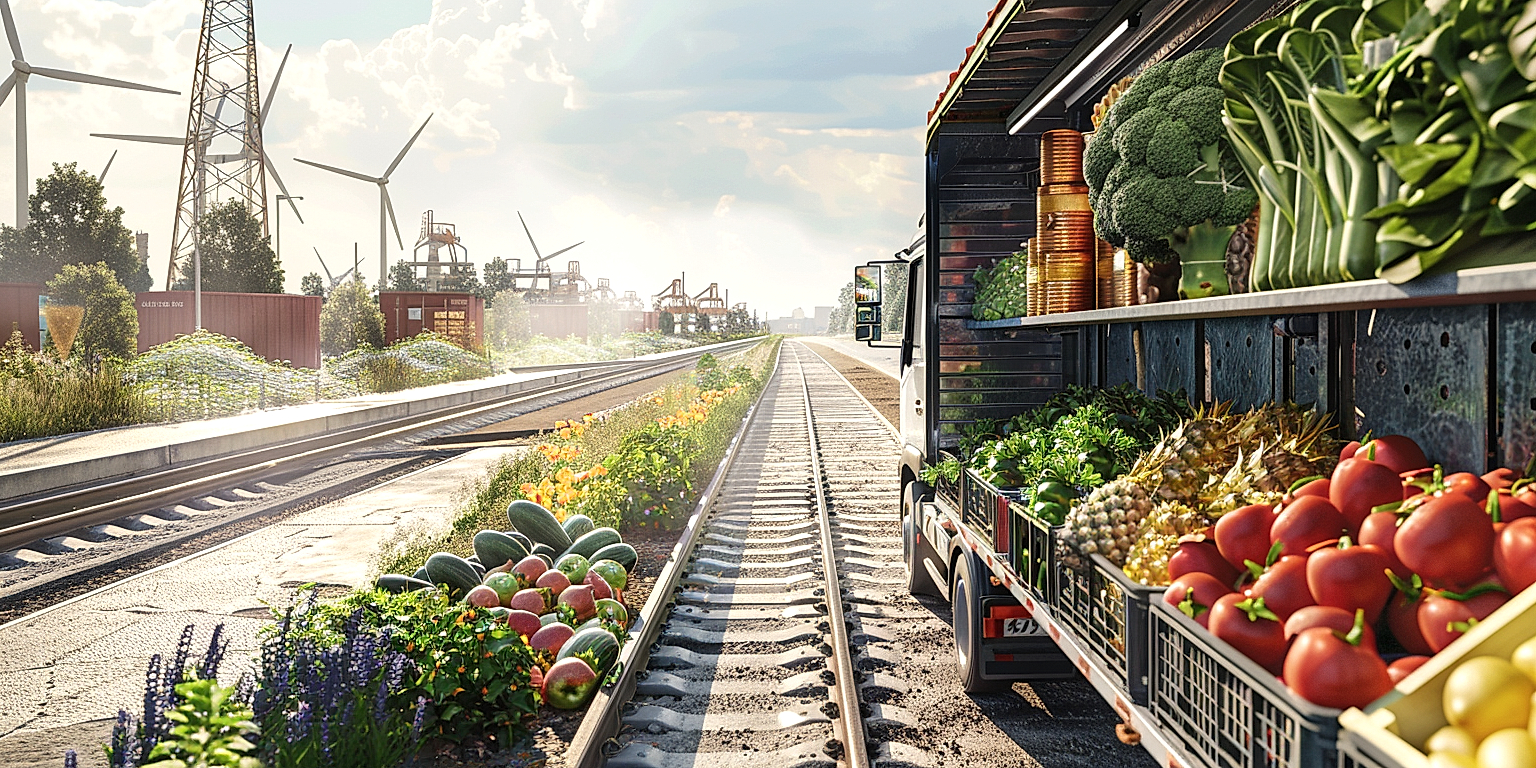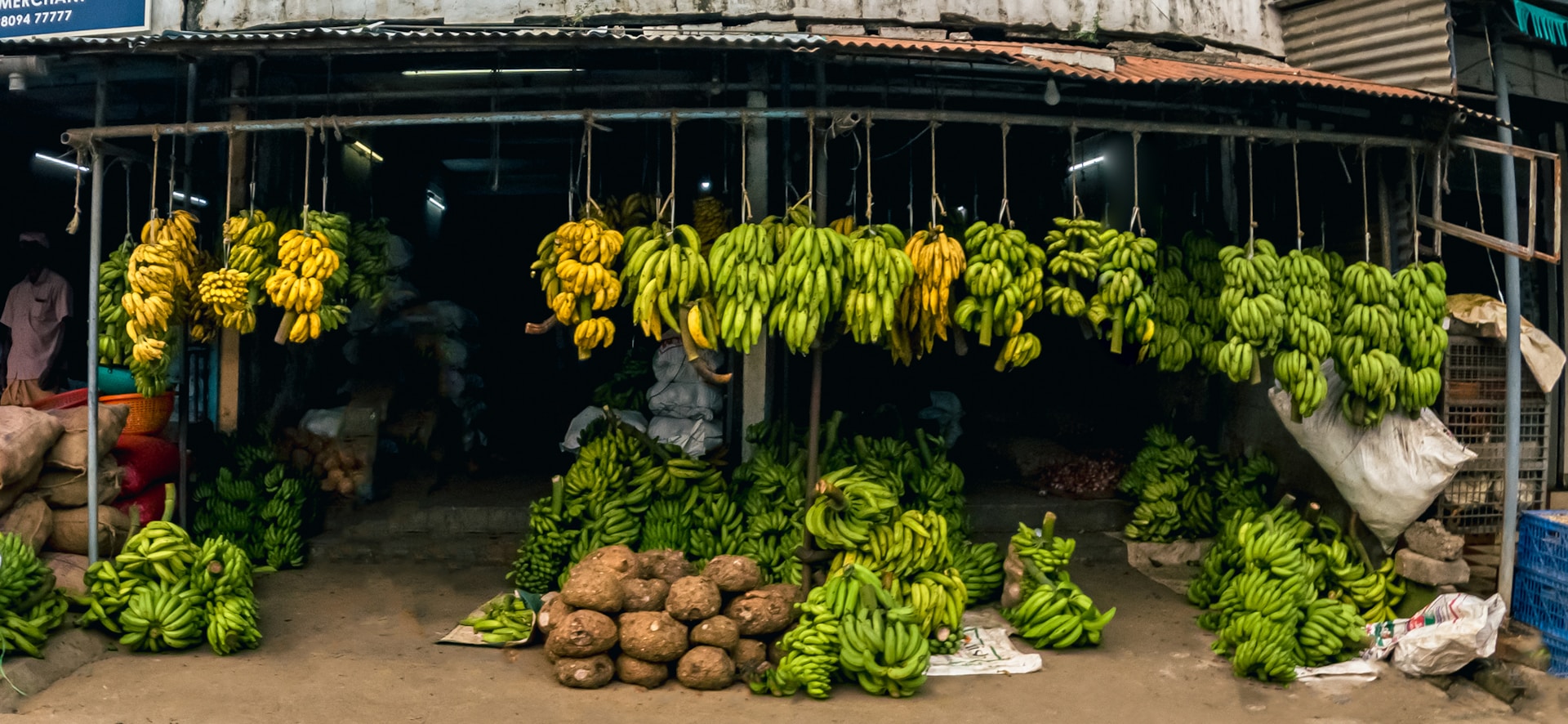The global produce shipping industry is undergoing a critical transformation.
Notably, this transformation is characterized by technological advancements designed to align operations with global sustainability goals.
A scope of changes powered by innovation is bringing forth new enterprises, modifying the landscape of logistics.
This transformation isn’t without reason.
Amidst unfolding climate crises and increasing incidents of food waste, the need for eco-friendly practices in produce shipping becomes paramount.
Through this writing, we will delve deep into breakthrough technological innovations that are shaping the sustainability trend in this sector.
Innovations Driving Sustainability In Produce Shipping Business
1. Electric Trucks for Transport
In the world of produce shipping, the concept of electric trucks bring game-changing implications.
These eco-friendly alternatives to traditional trucks run on electricity instead of fossil fuels, significantly reducing the carbon footprint associated with transportation.
One of the major advantages of electric trucks is the dramatic reduction in greenhouse gas emissions.
They produce zero tailpipe emissions, which play a significant role in combating climate change and improving air quality.
Further, they offer a solution to the environmental issues caused by the supply chain inefficiencies of traditional fuels.
Through the use of electric trucks, the produce shipping industry can dramatically lower carbon emissions, reduce noise pollution, and achieve an incredibly efficient energy conversion rate.
Another key element to consider is that, on the long run, electric trucks prove to be a cost-effective solution.
Maintenance costs for these innovative vehicles can be considerably lower than their diesel counterparts.
Moreover, as electricity prices are more stable than diesel fuel prices, businesses using electric trucks can enjoy more predictable operating costs.
Electric trucks also contribute positively to the protection of finite natural resources.
By shifting away from fossil fuels, we reduce our reliance on these limited resources and take strides towards sustainability.
Widespread adoption of electric trucks could motivate the creation of more renewable energy power plants, further promoting cleaner transportation in the industry.
However, the transition to electric vehicles also presents certain challenges.
For instance, the limited range of electric trucks and significant charging times can pose logistical issues for long distance transportation.
Additionally, the initial investment required for these vehicles along with charging infrastructure can be substantial.
Despite these challenges, the benefits of using electric trucks for produce shipping are clear.
Not only do they support environmental preservation, but can also prove to be a profitable investment in the long-term.
2. Biodegradable Packaging Materials
As the world grows more aware of the environmental impact of existing packaging materials, the demand for biodegradable alternatives is increasing.
Many businesses, including those in the produce shipping industry, are taking note of this change in consumer behaviour and are implementing them into their own practices.
This innovation is driving sustainability and helping to reduce the global carbon footprint.
Biodegradable packaging is a type of packaging that can break down, and decay into natural materials within the environment over a short period of time.
It leaves no toxic residue and does not contribute to the ever-growing waste problem currently plaguing our planet.
The use of these materials contributes significantly to achieving sustainability in the produce shipping business as they have a lower environmental impact compared to traditional packaging materials.
Such materials include starch-based packing peanuts, cornstarch packaging, mushroom packaging, seaweed packaging, and more.
These materials are derived from natural resources, are renewable, and are completely biodegradable.
Another important advantage of biodegradable packaging materials is the fact that they are often recyclable or compostable.
After use, the packaging material can either be composted at home or recycled to produce new packaging materials.
This offers a sustainable and circular solution, one that is extremely important for businesses seeking to reduce their environmental footprint and embody sustainability.
In the produce shipping business, the implementation of biodegradable packaging also contributes to profits and reputation.
Customers are increasingly aware of and concerned about environmental issues, and businesses that use sustainable practices often see an increase in customer loyalty and overall sales.
The challenge however, lies in the cost and durability of biodegradable packaging materials.
While they offer numerous environmental benefits, they can be costlier and less robust compared to traditional packaging materials.
Therefore, continuous innovation and development is crucial to create biodegradable packaging options that are not only sustainable but also economically viable and robust enough to withstand the rigors of the produce shipping industry.
3. AI-controlled supply chain optimization.
An evolutionary trend that has recently begun to take root in the produce shipping business is the implementation of AI-controlled supply chain optimization.
This type of artificial intelligence (AI) optimization is about using machine learning and predictive analytics to reduce operational costs, predict demand, and optimize logistics operations.
The interest and implementation of AI have significantly increased as its potential for enhancing efficiency across all aspects of the supply chain become increasingly evident.
AI-controlled supply chains allow businesses to leverage predictive analytics and real-time insights to streamline operations and make smarter, data-driven decisions.
Increased demand accuracy is one of the important benefits of AI-controlled supply chain optimization.
This is because AI and related technologies are incredibly effective at predicting patterns and identifying trends in data overlooked by the human eye.
AI can analyze vast amounts of data to determine which products will be in high demand and during what times, allowing businesses to adjust their supply chains accordingly.
This strategic adjustment based on AI analytics can help companies mitigate potential losses from overstocking and enable them to make the best use of their resources.
Furthermore, AI can also be instrumental in improving transport logistics.
For instance, AI-powered technology can track and predict weather patterns, traffic conditions, and predict potential road hazards, allowing shipping companies to plan their routes more efficiently and ensure timely delivery of fresh produce.
Moreover, the use of AI-powered supply chain optimization tools can provide real-time visibility into the shipping process.
This visibility allows businesses to immediately identify and address potential issues, enhancing overall performance and customer satisfaction.
AI-controlled supply chain optimization also brings about the benefit of operational cost reduction.
These cost reductions are achieved through more effective inventory management, route optimization, predictive maintenance, among many other AI-enabled efficiencies.
As the produce shipping industry ventures deeper into the realm of automation and digitization, leveraging AI can prove critical in driving sustainability in this sector.
Adopting AI-based optimization techniques can enable an unprecedented level of efficiency, reliability, and sustainability in the produce shipping business.
4. Solar-powered refrigeration systems
In addressing sustainability in produce shipping business, one cannot overlook the prevalent and promising innovation of solar-powered refrigeration systems.
These refrigeration systems are highly efficient and operate by harnessing energy from the sun—a renewable resource.
Having a solar-powered refrigeration system primarily reduces dependency on non-renewable sources of energy.
Moreover, standard refrigeration units often emit harmful gases like CO2 and HFCs (hydrofluorocarbons), significantly contributing to global warming.
However, the utilization of a solar-powered refrigeration system eradicates this problem as it operates on clean, solar energy.
Innovation of solar-powered refrigeration systems is not only supporting the sustainable functioning of the produce shipping business but is also an affirmation to their commitment in aiding the mitigation of global warming.
These systems do not just benefit the environment but also presents an economic advantage.
While the initial investment might be hefty, the long term savings on energy costs are significant.
Solar-powered refrigeration systems need less maintenance and have a longer lifespan than standard refrigeration units.
Furthermore, using solar energy for cooling purposes works exceptionally well because the availability of solar energy aligns with the need for refrigeration—both are high during the daytime.
It is also worth noting that this innovation is a game-changer for areas lacking stable electrical grids.
In such regions, maintaining the cold chain for fresh produce can be a significant challenge.
However, solar-powered refrigeration systems provide a solution to this critical problem.
The transportation industry, notably the produce shipping business, is extensively equipping their reefer containers (refrigerated containers) with solar panels.
This adaptation not only preserves the quality and freshness of the produce but also enhances the operational efficiency of the entire supply chain.
As these advancements continue to evolve, the sector is anticipated to become more sustainable and cost-effective.
In essence, solar-powered refrigeration systems are pivotal in redefining and transforming the sustainability landscape of the produce shipping business.
5. Eco-friendly practices in farming
A major innovation driving sustainability in the produce shipping industry is the adoption of eco-friendly farming practices.
From seed to harvest, sustainable methods are changing the way produce is grown, drastically reducing the negative impact on our environment.
These methodologies seek to preserve the healthiness of the soil, promote biodiversity and reduce water consumption.
Using integrated pest management techniques, farmers can effectively manage pests without resorting to harmful chemical pesticides.
This involves the use of biological controls, habitat manipulation, modification of cultural practices, and use of resistant strains.
The adoption of precision agriculture technologies helps farmers make effective use of resources, reduce waste and increase productivity
Also, the role of cover crops to enrich soil health can’t be understated.
These crops provide a multitude of benefits such as erosion prevention, soil fertility enhancement, and suppression of weeds.
Equally important is the conservation and smart use of water resources, involving techniques like drip irrigation and rainwater harvesting.
These techniques help preserve water while ensuring the crops get the adequate amount they need.
Another innovation is the use of organic matter to enhance soil fertility, instead of synthetic fertilizers.
This greatly reduces the amount of harmful chemicals released into the environment, promoting a healthy ecosystem.
Rotation of crops is another eco-friendly farming practice gaining huge traction.
It helps in the prevention of erosion and the enhancement of soil fertility all the while managing pests and diseases.
Lastly, there has been a shift to dependence on renewable energy sources to run farming equipment, further lessening environmental impact.
These approaches are drastically changing agricultural practices, ushering in an era of sustainable farming, that is propelling produce shipping businesses towards a greener future.
6. GPS led waste reduction in transport.
The application of GPS technology in the produce shipping business is rapidly transforming the industry by enhancing sustainability.
To start with, GPS technology can significantly reduce fuel consumption. This is possible since it allows trucks to take the most efficient routes, therefore avoiding unnecessary mileage.
Moreover, it reduces the idle time as it minimizes the time the vehicle spends being lost or looking for a specific location, which in turn mitigates the emission of harmful gases.
In a broader perspective, this technology allows real-time tracking of produce. This ensures efficient scheduling and timing which in return reduces waste stemming from spoilage.
Employing GPS technology also leads to an organized and efficient transportation system which is key in implementing a circular economy.
By providing the exact location of transportation units, GPS technology enables shippers to execute well-organized pick-ups and deliveries thus eliminating unnecessary trips which in turn saves on fuel and reduces emissions.
It’s also worth noting that these efficient logistics operations enabled by GPS technology can positively impact customer satisfaction which is a key success factor in the competitive produce shipping business.
Importantly, the use of GPS technology in transporting goods allows for the production of reliable data that can be used in future planning and decision-making processes to further enhance sustainability in the industry.
Moreover, the data produced can be utilized by various stakeholders such as environmental regulators for monitoring, policy-making, and enforcement which are crucial in driving sustainability.
To sum it up, by being able to plan, track, and optimize routes in real-time, companies can ensure produce is delivered in the fastest and most efficient way possible.
As a result, GPS technology aids in reducing the carbon footprint, promoting local sourcing, and ultimately minimizing the environmental impact, thus making the produce shipping business more sustainable.
Looking at the long-term impact, the adaption of GPS technology in produce shipping might as well facilitate the development of future green technologies or eco-friendly practices in the transport and logistics sector.
While GPS technology itself is not new, its innovative application in the produce shipping industry is proving to be a game-changer by promoting sustainability.
This complements other technological advancements being used to drive sustainability such as electric trucks, biodegradable packaging materials, AI-controlled supply chain optimization, solar-powered refrigeration systems, and largely, the use of IoT for real-time crop management.
7. IoT for Real-Time Crop Management
The Internet of Things (IoT) is transforming numerous industries, including agriculture and, by extension, the produce shipping business.
By embedding sensors in crop fields, real-time data on factors influencing crop growth such as soil moisture, temperature, and light can be collected.
These sensors can also detect the presence of pests or crop diseases, alerting farmers in time to take necessary action and prevent extensive damage.
IoT-driven farm equipment such as automated irrigation systems and drones can adjust their operations based on real-time data, ensuring efficient usage of water and fertilizers.
Through predicting weather conditions, farmers can make informed decisions about when to plant, water, or harvest crops, contributing to higher yield and less waste.
Furthermore, it can provide accurate insights about the growth stage of the crops, which can be vital for planning the shipping process.
Essentially, real-time crop management through IoT is about gathering, analyzing, and applying data promptly and accurately, leading to improved operational efficiency and sustainability in the produce shipping business.
IoT smart packaging solutions can also monitor and report on the conditions inside shipping containers, ensuring the quality of the produce during transportation.
Real-time tracking reduces product loss due to damages and extends the product’s shelf life by ensuring optimal storage conditions.
All these IoT implementations lower the environmental footprint of the produce shipping business via waste reduction, energy efficiency, and optimized resource use.
More importantly, IoT data can assist in achieving a deeper understanding of the entire supply chain, identifying inefficiencies, and striving for continuous improvement.
In addition to its direct benefits, IoT can enhance transparency in the supply chain, as stakeholders can monitor in real-time each step from farm to fork.
Lastly, the use of IoT in agriculture and produce shipping stands to boost the perception of businesses as sustainable and technologically advanced, an ever more important factor in the eyes of conscious consumers.
Innovations like IoT clearly illustrate how new technologies can help industries move towards more sustainable practices, addressing mounting environmental concerns and driving the future of the produce shipping business.
The Bottom Line
Harnessing modern technological advancements and adopting eco-friendly practices show great promise in revolutionizing global supply chains.
Electric trucks serve to decrease harmful emissions in transport, while biodegradable packaging materials helps mitigate wastage and pollution.
The implementation of AI-controlled supply chain optimization bring about significant efficiencies and cost saving measures.
In agriculture, solar-powered refrigeration systems and sustainable farming practices aid in promoting environmental conservation.
Additionally, GPS led waste reduction in transport and IoT utilization for real-time crop management further solidify their respective roles in facilitating green and sustainable practices.
Indeed, the concerted efforts in utilizing these advancements present a promising future for a more sustainable and efficient global supply chain.




